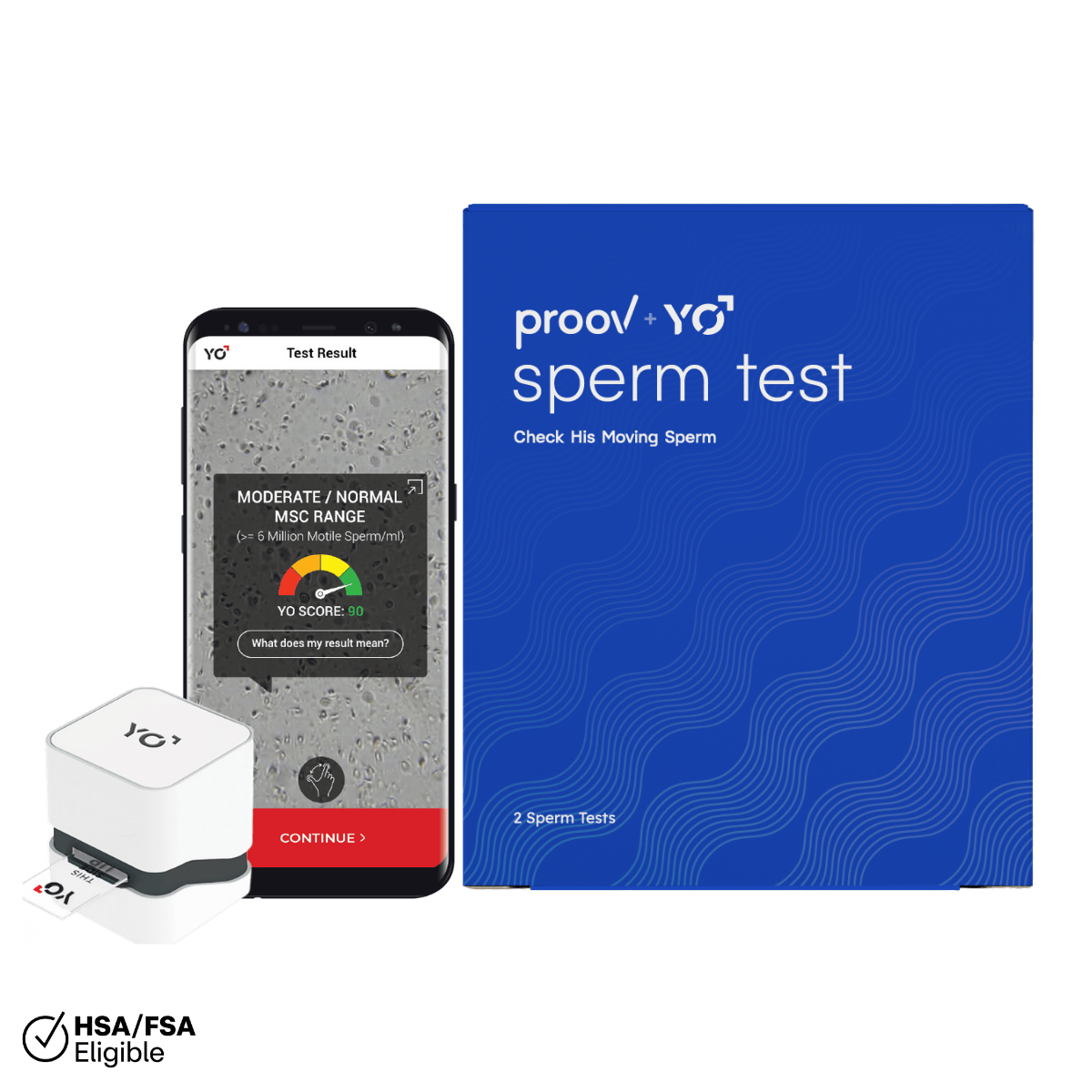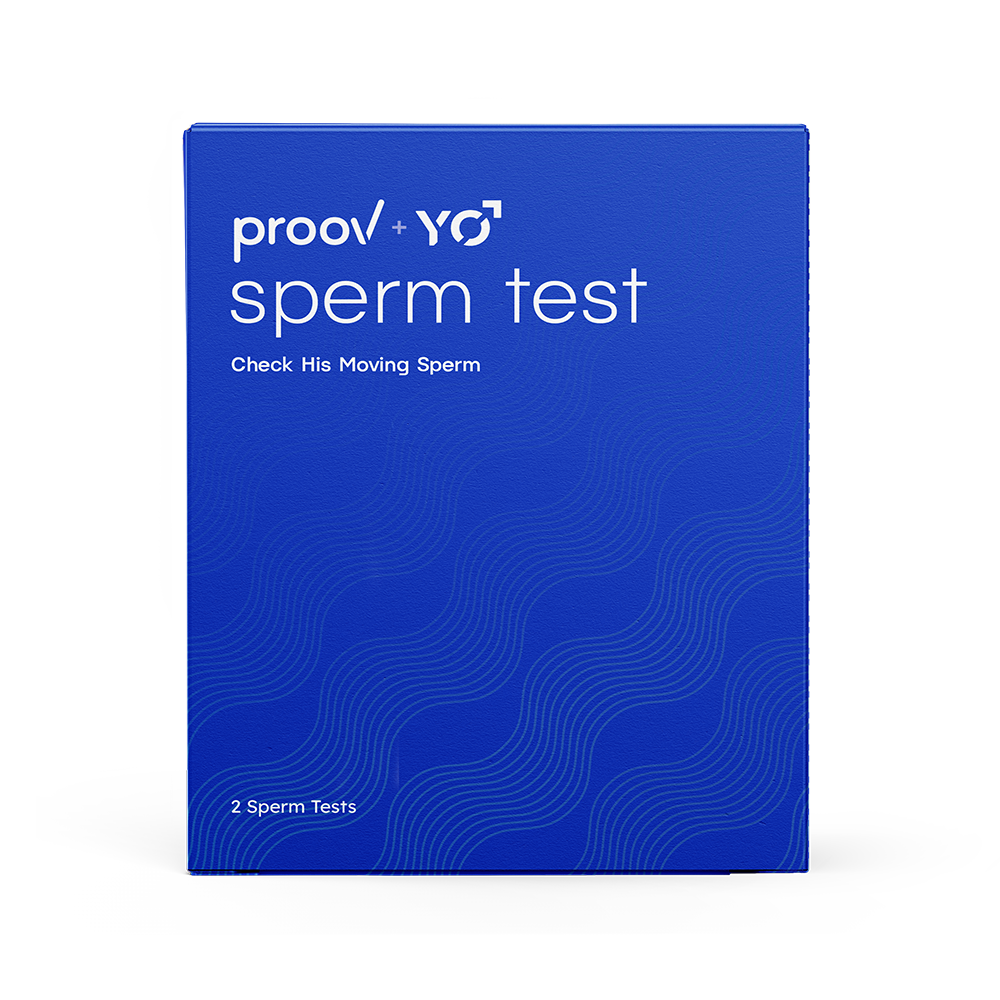Written by: Dr. Amy Beckley, PhD, Founder and Inventor of the Proov test — the first and only FDA-cleared test to confirm successful ovulation at home.
Written on 12/28/21
Positive ovulation tests are a sign that it’s time to get busy if you’re trying to conceive. This is critical information for ensuring sperm meets egg!
However, there are some misconceptions about using ovulation tests and what your results actually mean. Keep reading to learn how long an ovulation test will stay positive — and if that information even matters!
What are ovulation tests?
Ovulation tests are urine-based hormone tests that measure luteinizing hormone (LH) levels in urine. They help us predict when during our cycle ovulation is going to occur.
As our ovary matures eggs and prepares them for ovulation, it starts producing estrogen. When estrogen reaches a certain level, this signals to your brain that a mature egg is ready to ovulate!
So, your brain sends a surge of LH to the ovary to trigger the ovary to release the egg. LH surges about 12-36 hours before ovulation should occur (but note that just because you have an LH surge does not mean you actually ovulated — more on this later!).
Ovulation tests help you track your LH levels over time so you can identify your surge.
Why should I use ovulation tests?
Now you may be wondering, why is an LH surge so important? In fact, knowing when you ovulate is critical for timing intercourse in order to conceive.
You see, after ovulation an egg can only survive for about 12-24 hours. That means you only have a short window of time in which sperm can actually meet the egg and fertilize it.
Sperm, on the other hand, can survive in your reproductive tract for up to 5 days. This means timing intercourse before you even ovulate can give you the best chance at sperm meeting egg, i.e. conception.
Since an LH surge occurs a few days before ovulation, knowing when you surge helps you time intercourse accordingly.

Since an LH surge occurs a few days before ovulation, knowing when you surge helps you time intercourse accordingly.
What does a positive ovulation test mean?
LH tests like Proov Predict typically turn positive when at least 25 mIU/ml of LH is present in urine. Studies show an LH level of at least 25 mIU/ml is most predictive of ovulation.
A positive ovulation test indicates an LH surge, meaning you can assume ovulation should occur anytime over the next 12 and 36 hours. You’ve entered your two most fertile days and this is when intercourse is most likely to result in conception.
Basically, you should start having intercourse now if you haven’t already!
How long will an ovulation test stay positive?
So, how long do ovulation tests stay positive? As long as your LH levels are over the positivity threshold — remember for Proov Predict that’s 25 mIU/ml or more — your ovulation test will remain positive. Some LH surges last a few days, while others are much shorter.
In fact, studies show that there is wide variability in the length of LH surges that result in ovulation. Some of us may have short surges that last less than a day, while others may experience surges that last up to an ovulation test positive for 3 days.
However, the truth is that there may not be much value in testing until your LH test returns to negative or testing to find the “most positive” test (i.e. the one with the darkes test line). Since ovulation most commonly occurs 12-36 after a surge of at least 25 mIU/ml, if you keep testing past your first positive test, you may miss ovulation altogether.
Your first positive LH test is most predictive of your 2 most fertile days. If you ovulate soon after your surge begins, continuing to test without having intercourse may hurt your chances of getting pregnant.

Your first positive LH test is most predictive of your 2 most fertile days.
What do you do after a positive ovulation test?
First things first, after a positive ovulation test you no longer need to continue testing LH. Once you get your first positive, you have successfully identified your 2 most fertile days and can now time intercourse accordingly!
While you used to have to wait the dreaded two weeks until you could take a pregnancy test, now you can confirm successful ovulation! You’ll remember that traditional ovulation tests don’t actually tell you whether or not you’ve ovulated (poor naming, really).
However, there is an at-home hormone test that can confirm ovulation: Proov Confirm. Proov Confirm is the first and only FDA cleared PdG test to check for successful ovulation at home.
PdG is a urine marker of progesterone —the hormone produced by the ovary only after ovulation occurs. Progesterone’s main job is to prepare the uterus for implantation by making its lining “sticky” enough to allow for the best possible chance at implantation and pregnancy.
Studies show PdG levels in first morning urine correlate to an average of all progesterone levels from the day before. Testing with Proov Confirm on days 7-10 after peak fertility (i.e. your first positive ovulation test) confirms ovulation did in fact occur and PdG levels remained elevated during that time to allow for a higher chance at pregnancy.
Both LH and PdG tests are critical when trying to conceive, so why not buy them together?! With the Proov Predict & Confirm kit, you can get your LH and PdG tests all in one test kit.
While one positive ovulation test is enough each cycle, we believe there is no limit to the value that knowledge about your hormones provide, especially if you’re TTC.













